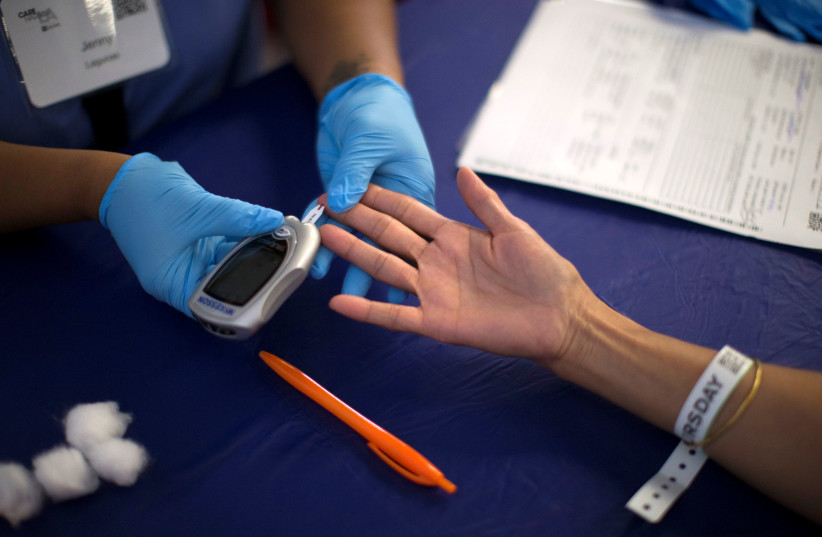Wars profoundly impact our society. Beyond the loss of life, injuries, and destruction, wars also take a toll on our mental well-being. Post-war, many people experience feelings of uncertainty and danger, leading to heightened levels of stress and anxiety. These feelings can impact both our mental and physical health as well as our ability to function every day.
When people find themselves in a constant state of tension and stress, which tends to be the case during times of war such as the ongoing war with Hamas, the risk of disease increases significantly. As a result, it is crucial to comprehend the relationship between mental stress and its effects on our mental well-being, as well as the health and vitality of our bodies, especially how it relates to diabetes.
Numerous studies have suggested that one of the most concerning outcomes of mental stress is its impact on blood sugar levels. Diabetes is characterized by high levels of sugar (glucose) in the blood, caused by a shortage or malfunction of the insulin hormone responsible for regulating sugar levels. The body releases hormones that raise glucose levels during stressful situations, leading to a significant decrease in insulin function and an imbalance in blood sugar levels.
Untreated imbalanced diabetes can result in various complications. Because of this, it is essential - especially during this stressful period - to mitigate the negative effects of stress and maintain balanced blood sugar levels.
Here is how you can manage diabetes and keep your blood sugar levels balanced:

1. Optimal nutrition
During stressful and tense times like these, many individuals tend to consume more food as a source of comfort, which may jeopardize the balance of blood sugars. It is important to follow a healthy and structured diet, avoiding processed foods and prioritizing fruits, vegetables, whole grains, lean proteins (e.g., poultry and fish), and healthy fats (such as olive oil and nuts).
2. Regular physical activity
Despite spending more time at home during this period, it is crucial to engage in daily physical activity. Choose exercises that allow you to remain active, such as walking around your living area, dancing, stretching exercises, or using the stairs. Regular physical activity helps maintain balanced blood sugar levels and can even alleviate stress.
3. Quality sleep
Getting enough sleep is especially important for individuals with diabetes as it helps lower blood sugar levels. Establish a daily routine and aim to get at least seven hours of sleep each night.
4. Stress reduction techniques
Make an effort to reduce stress levels as much as possible. Limit how much time you spend watching the news and practice relaxation techniques, such as listening to music or breathing exercises. Additionally, focus on the positive moments experienced throughout the day. These strategies will help manage stress and contribute to a sense of calmness and inner strength.
5. Monitor your blood sugar
Even during a time when our daily routines have been disrupted and it is natural to be concerned about the state of our country, you should still make sure to regularly monitor your blood sugar levels. Consider using a continuous glucose meter that reflects your sugar levels at any given time by scanning your phone. This increased awareness allows for appropriate treatment adjustments as necessary.
This is undoubtedly a challenging and stressful time for all of us, but it is crucial to maintain hope, surround ourselves with supportive and loving people, establish habits that provide temporary respite from the current crisis, and stay active, such as through volunteering for evacuees or being social.
The author is the director of the Diabetes Unit at Wolfson Hospital and a Senior Diabetologist at the DMC Diabetes Center.
